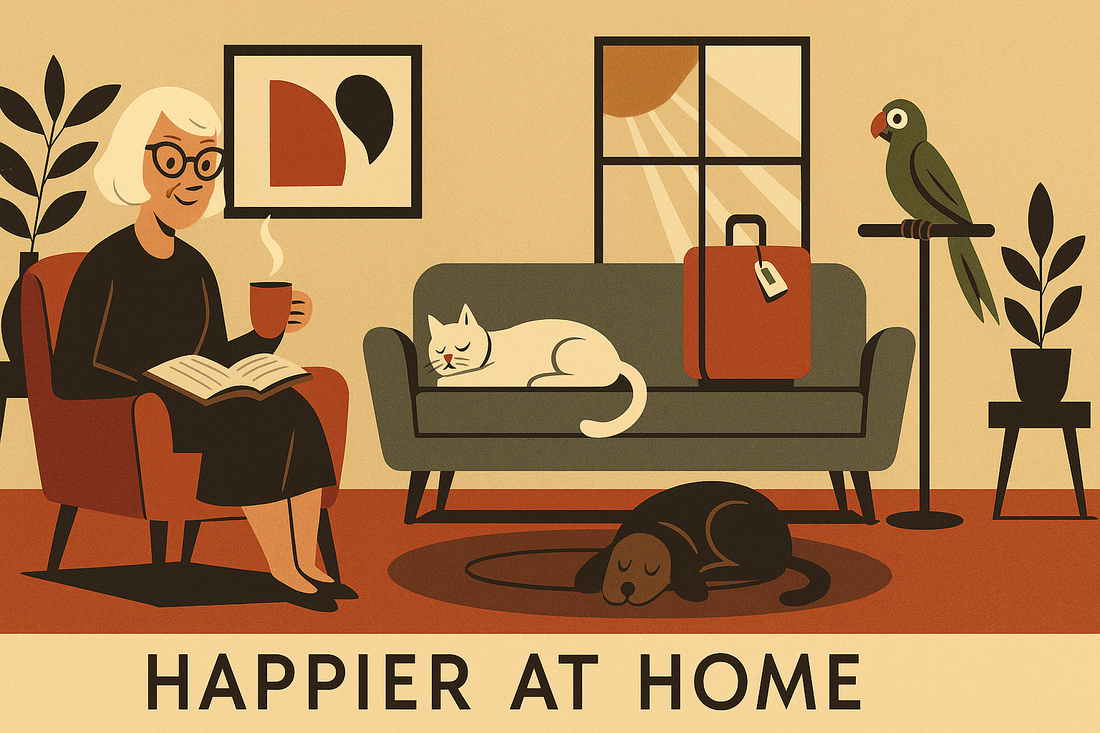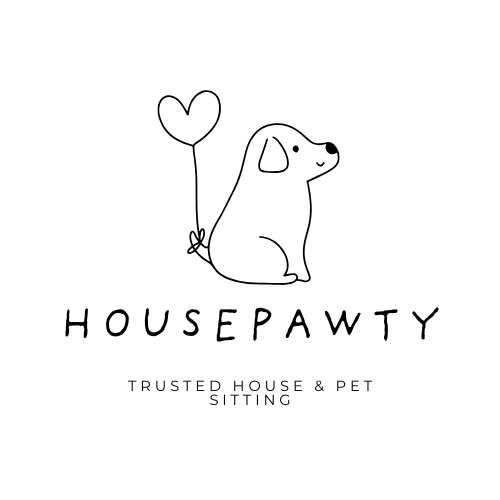
Are pets happier at home when you travel? What the research and vets say
Share
Why “home” helps
Animals cue off scent, space and routine. Keeping feeding, sleep and play on schedule in a familiar environment reduces stress for many pets. Veterinary trainers often recommend in-home sitting first because it preserves routine and lowers stress, especially for anxious dogs. (preventivevet.com)
Cats: happiest in their own territory
Notwithstanding it being a distant island, major UK charities are clear. Cats Protection writes that keeping your cat at home is the safest and least unsettling option, and that cats are less likely to be stressed and will be more content in their own environment. PDSA likewise recommends a trusted house sitter to minimise stress. (Cats Protection, PDSA)
Many pets find owner absence and routine changes stressful, so asking responsible friends or a sitter can keep things familiar while you are away. (rspca-brighton.org.uk)
Dogs: it depends on temperament
Reviews of kenneled dogs show cortisol, a stress hormone, often rises when dogs enter challenging kennel environments, especially at first. Stress varies with the dog and the setup. (PMC)
That said, not every dog struggles. A University of Lincoln study reported some dogs may find short kennel stays arousing or even exciting, which reminds us that personality matters. (ScienceDaily, University of Birmingham)
If your dog is anxious or thrives on routine, many veterinary behaviour advisors suggest an in-home sitter to keep the usual schedule in a familiar space. Transport itself can elevate cortisol, another reason some dogs cope better at home. (preventivevet.com, MDPI)
Practical note on time alone
Blue Cross guidance says dogs should not be left alone for long stretches. Plan live-in care or frequent pop-ins to match your dog’s needs. (Blue Cross)
Birds and parrots: consistency is king
Parrots are intelligent, social and prone to stress from environmental change. Research on parrot welfare highlights the importance of enrichment and managing stress physiology, which supports keeping routines predictable and the environment familiar when possible. (ScienceDirect, Oxford Academic)
When boarding can be the better fit
Boarding or medical boarding can suit pets that are highly social, need 24-hour professional oversight, or require complex treatments. Quality varies, so tour any facility, ask about staffing, enrichment, vaccination policies and how they handle stress. Neutral checklists from humane and veterinary groups can help you compare options. (sharonlakes.com, animalhumanesociety.org)
How to decide: quick decision tree
Species and temperament
- Cats or parrots, or dogs with separation anxiety → lean in-home pet sitting. (Cats Protection, PDSA, ScienceDirect)
- Highly social, easy-going dogs that enjoy novelty → consider high-quality boarding after a trial half-day. (ScienceDaily)
Health and age
- Complex meds or frail seniors → ask your vet whether in-home care or medical boarding is safer. (sharonlakes.com)
- Logistics
- Long travel or unreachable owner → designate a trusted person to authorise vet care in emergencies. (avma.org)
In-home care checklist for low-stress stays
- Keep the same food, bowls, beds, toys and litter setup.
- Write a to-the-minute routine for feeds, walks, play and lights.
- Provide emergency contacts and vet details, plus written consent for treatment. (avma.org)
- For parrots, list enrichment rotations and handling rules. (ScienceDirect)
- Book a meet-and-greet so pets know the sitter before you leave. Guidance from animal charities supports preparation as a stress reducer. (rspca-brighton.org.uk)
FAQs
Are pets happier at home than in boarding?
Often yes, especially for cats and many routine-loving or anxious dogs. Birds also benefit from consistent environments. Personality and facility quality still matter. (Cats Protection, PDSA, preventivevet.com, ScienceDirect)
Is boarding always stressful for dogs?
Not always. Some dogs cope well or enjoy the stimulation. Others show higher stress markers on entry to kennels. Trial visits help you learn your dog’s response. (ScienceDaily, PMC)
How long can I leave a dog alone if I only book pop-ins?
Plan care so your dog is not left alone for long periods. Aim for frequent visits or a live-in sitter, especially for puppies, seniors and anxious dogs. (Blue Cross)
